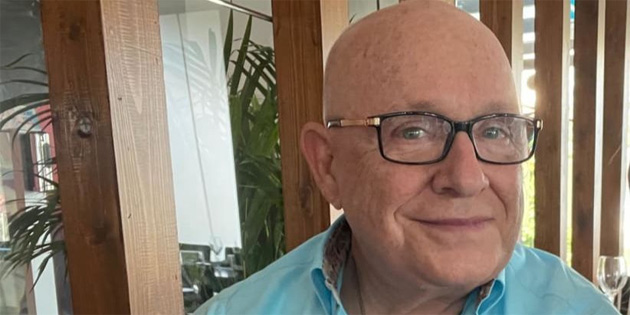The policeman who was working in the passport control booth at the Dherynia crossing point who arrested Israeli property developer Simon Aykut when he attempted to cross from the north testified in court on Monday during the latest hearing of his trial.
Sofronis Sofroniou told the Nicosia criminal court he had been handed a Portuguese passport at 2.40pm on June 7, 2024, and that he had “identified the details of Simon Aykut”.
He said the registration plate of the car in which Aykut was travelling was on the police’s stop list, and that he had then informed Aykut that he was under arrest.
Aykut, he said, had then said he had “health issues”.
He then said two other police officers had arrived at the crossing point at 3.45pm to take Aykut away.
Sofroniou was then cross-examined by defence lawyer Maria Neophytou, who asked him what exactly was written on his computer screen when he processed Aykut’s passport, and his response was that it said that an arrest warrant which had been put out on the previous day, June 6, 2024, was pending, and that five charges were attached to it.
Asked about when the arrest warrant “came into his hands”, he said he had telephoned the police’s headquarters and been sent the warrant by fax, which he then printed out and showed to Aykut.
Neophytou then asked him why Aykut’s passport number is different on the warrant and his passport, and Sofroniou said he had “probably entered the wrong number” when writing it down, describing the discrepancy as a “typographical error”.

The remainder of the day’s hearing was devoted to relatives of the registered pre-1974 owners of land allegedly developed by Aykut’s company the Afik Group, who told the court about their land and what had been done to it, with Aykut accused of developing and selling €43 million worth of property on Greek Cypriot land in the north.
The first was Kleanthis Ktorides, originally from the Famagusta district village of Akanthou, who inherited from his father one ninth of a plot near the village.
He told the court that he had been “unaware of any development” on the property he inherited until he was informed by the police that his land was being developed.
The police, he said, had shown him a topographical map and two aerial photographs to prove to him that his land was being developed.
He added that he had “neither developed or sold” the plot, that he does not know Aykut, and that he has no intention of filing a case at the Immovable Property Commission (IPC).
Next was Maria Aresti, also originally from Akanthou, who said that she and her siblings are the joint owners of two plots of land near the village.
She said she had filed a case against Turkey for the loss of use of her property at the European Court of Human Rights (ECtHR), and that the ECtHR had referred her to the IPC to seek compensation, but that she “did not proceed with such a request”.
To this end, she said she and her family “never allowed any intervention, sale, or investment” in the plot, and that she does not intend to go to the IPC.
When cross-referenced by Neophytou, she was asked what she intended to gain from the ECtHR, and she said she was “seeking the family’s property, not compensation”.
Three more witnesses, all of whom inherited land near Trikomo, also took to the stand during the remainder of Monday’s hearing.
The next two hearings are set to take place on September 22 and September 29.






Click here to change your cookie preferences